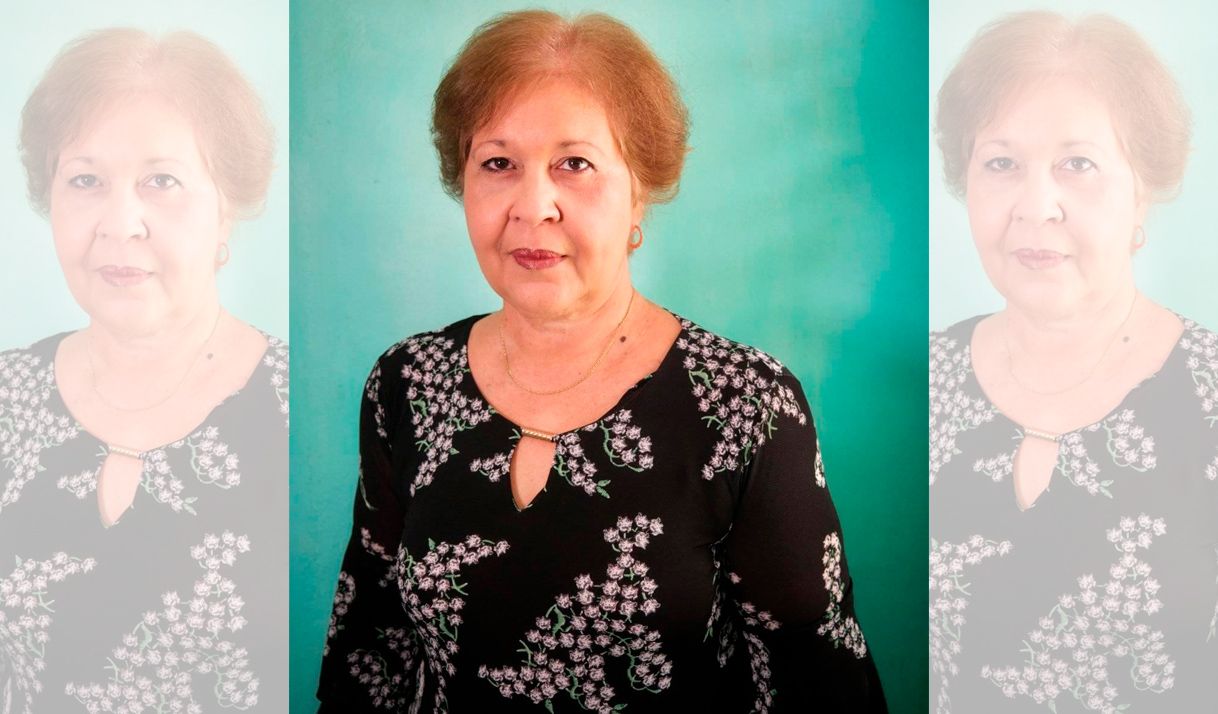Man doesn’t live in the world alone; in that there is great happiness, but also a tremendous responsibility. That obligation is first of all in not being and not acting exclusive, but rather merging with the needs and the goals of others.
Milada Horáková
On November 28, 2023, my colleague Alina Barbara Lopez Hernandez will be taken to court in Matanzas, in a summary judgement for a crime that not even her accusers believe: contempt. This political ridicule isn’t new in Cuba, serving justice has become a form of political punishment over the past 65 years. From court proceedings for the first dissident voices in the 1960s (in the ‘70s and ‘80s too), activists being given jail-time in the 1990s, to the arrival of the new millenium with the sad Black Spring (2003); and more than a decade later, trials for protestors of the popular uprising of July 11, 2021 (11J).
In Cuba, court rulings have been a machine to churn out common crimes for people who decide to oppose the political regime that governs.
After 11J, we saw a long cycle of prison sentences for political reasons, with the additional reappearance of sedition on criminal records. It was against this backdrop that a group of intellectuals went public with the “Manifesto against silence, for justice.” The document asked colleagues still living in Cuba and the rest of the international community to focus on what was happening on the archipelago.
Professor Alina Barbara Lopez Hernandez was one of the organizers of this manifesto. Living in Matanzas, the academic has become an expert in the field of the history of ideas. Lopez Hernandez is a member of the Cuban Academy for History and has become a critical voice of the totalitarian state on the archipelago.
Professor Alina Barbara – as many people call her on social media – is a progressive academic well-known in Cuban civil society. Over the past decade, she has extensively analyzed sociology and politics in different news spaces and within Cuba’s critical academia. Even so, we need to ask one question: what was the turning point in her life that led her to take to social media and occupy the public space to protest?
A cycle of political harassment that forced her to leave media platform La Joven Cuba – where Lopez had left an important mark by taking in critical or openly dissident intellectuals, which changed the image of collaborators (with the government) that had weighed on the space since it was created.
If there’s one human quality that stands out in Alina it’s her sense of justice and solidarity. The ethical pairing has become an intense voice inside her that she wasn’t been able to silence when her friend, the comedian Jorge Fernandez Era was arbitrarily arrested. This was when the essayist began to take to the public space and it made a 56-year-old woman a stone in the shoe of the totalitarian State and the Cuban Cuban Communist Party political class.
After that, Lopez Hernandez led a sit-in at Parque de la Libertad in Matanzas, as a sign of her nonconformity, and she has been stripped of her rights and arrested on different occasions. On the 18th of every month, the professor decided to launch a civic action that involves staying an hour in the main square of her city to demand four concrete demands to improve political and social coexistence: a) the call for a constituent assembly that leads to a new Constitution that will address every group of Cuban society, b) better living conditions for the elderly, c) freedom for prisoners of conscience, and d) the end of repression against citizens for thinking differently in Cuba.
Her civic action has had a price that Professor Lopez knew she’d have to pay. First, a harassment campaign on State Security’s main platforms; then, regulation (a euphemism used by the Cuban Government to restrict freedom of movement of citizens that make them uneasy); and lastly, the criminal trial for disobedience and putting her under house arrest until the trial takes place on November 28, 2023, after it was postponed 12 days (it was originally supposed to take place on November 16th).
For those of us who know Alina, the trial is like a bad science fiction novel or just another botched job by the totalitarian regime that wants to continue its wave of public ridicule – hundreds of citizens have been subjected to similar proceedings before the professor. Many people will ask: what are the Cuban political apparatus’ real reasons for holding a criminal trial against Lopez?
The first thing that the Cuban Government has against Dr. Lopez is her public solidarity and the cautious follow-up of colleagues that have been purged from educational or research institutions, resorting to public protest, legal advice or emotional intimacy. Another reason is the fact the professor belongs to an age group that grew up with the political system and its paternalistic measures.
This population group defended the “Revolution”, but it has spent most of its life in insecurity and are now unconsolable as they watch their children emigrate. The totalitarian regime is aware that if this social group mobilizes (protests were led in recent years by citizens aged 20-40 years old), it could blow up the weak social support they still have. Furthermore, Lopez has continued her social and political reflections by launching the communications project CubaXCuba, where she is the codirector.
They are also trying to teach a lesson with this trial to two groups who are still able to respond even after civil society was broken down after the attempt for a Civic March by the Archipielago platform: activism from the alternative Left which still persists in Cuba and a group of academics (both on the island and in the diaspora) who support and team up with the professor accused of raising awareness and civil actions.
The trial against Alina Barbara Lopez reminds us of the purge of intellectuals in the Soviet Union, the satellite States in Eatern Europe and the ones we saw in Cuba years ago. Just like then, the sentence against my colleague has already been written. Public actions and pressure from decent and honest citizens, both in Cuba and in the diaspora, will be the only resource for the legitimate defense and pardon for the intellectual. We all know that if there’s one thing Cuban totalitarianism is afraid of its media pressure and a chorus of voices “heating up the social networks.”
This article was translated into English from the original in Spanish.










comments
We moderate comments on this site. If you want to know more details, read our Privacy Policy
Your email address will not be published. Mandatory fields are marked with *